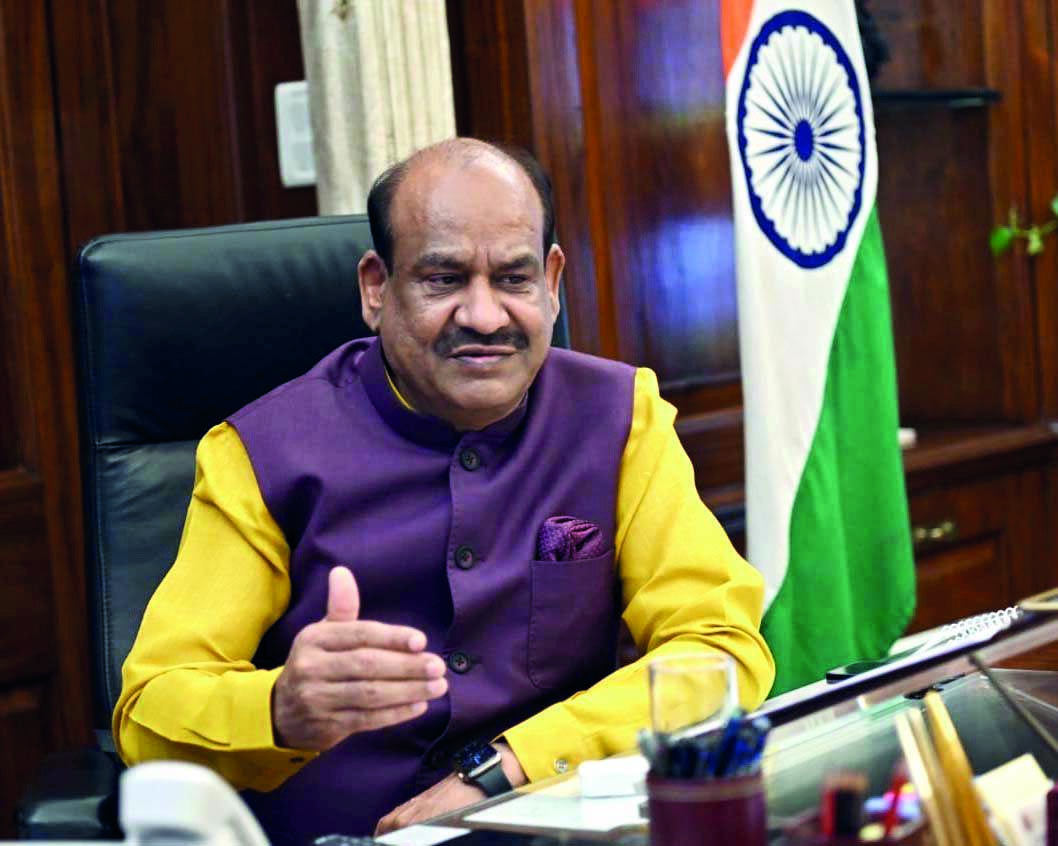'With many firsts, LS touched new heights in 3 years'

When Om Birla, a two-time Lok Sabha MP from Kota, was elected as Speaker of the 17th Lok Sabha on June 19, 2019, it had come as a surprise not only for the Opposition but even for Treachery benches in the Lower House. In comparison to several known 'heavyweights', Birla was not a 'famous' MP. It was his simplicity and honest commitment to his responsibilities that worked in his favour and got him appointed as Speaker of Lok Sabha. The soft-spoken Hindi-speaking Speaker became a household name due to his meticulous floor management skills. While talking to Dhirendra Kumar of Millennium Post, Om Birla explains his three years journey as Speaker of Lok Sabha.
How do you see your three years of tenure as Lok Sabha Speaker?
The 17th Lok Sabha was constituted on May 25, 2019, and its first sitting was held on June 17, 2019. The three-year journey of the 17th Lok Sabha has been unprecedented. During the last three years, the Lok Sabha has touched new heights.
The productivity of the first eight sessions of the 17the Lok Sabha has been higher than the first eight sessions of the 14th to 16th Lok Sabha. It recorded 106 per cent productivity. In comparison to the working hours of the first eight sessions of the last three Lok Sabhas, the House worked for 995.45 hours, which is the highest. As out of the last three years, two years have been affected by the Covid-19 pandemic, I ensured strict adherence to health safety protocols in such circumstances that led to 167 per cent productivity in the fourth session of the 17th Lok Sabha held during the peak of Covid-19 pandemic, which is the highest in the 70-year history of the Lok Sabha.
In the 14th Lok Sabha, 107 bills were introduced while 120 bills were passed. In the 15th Lok Sabha, 114 bills were introduced and 95 bills were passed, 96 bills were introduced and 94 bills were passed in the 16th Lok Sabha. At the same time, 139 bills were introduced and 149 bills were passed during the 17th Lok Sabha.
The oral replies given by the government during the Question Hour have increased nearly two-and-a-half times in comparison to the 14th Lok Sabha, two times compared to that of the 15th Lok Sabha, and one-and-a-half times more than that of the 16th Lok Sabha. On matters raised by the Members under Rule 377, replies are being received in about 95 per cent of the cases within the stipulated period of 30 days.
What's the status of the new Parliament building?
The construction work of the new Parliament building is will be completed by October this year. The new building would be a green building equipped with necessary facilities for environmental and energy conservation. The new building will have a seating capacity of 888 members in the Lok Sabha chamber, and during joint sessions of both Houses, 1,272 members can be seated. The Rajya Sabha chamber will have a seating arrangement of 384 members.
What steps have you taken to improve the functioning of the Lok Sabha?
As it came to my notice that members struggle a lot to get supporting papers while participating in debate and discussion, Parliamentary Research and Information Support for Members (PRISM) was established for the capacity building of members. Under this, 24 hours information assistance is made available to members. Besides, comprehensive references and legislative notes on different subjects are also made available to members.
Members get the facility of briefing sessions by subject experts before the introduction of Bills in the House. Now, members also get the facility to provide books sought by them at their residences within NCR.
Dr Ambedkar Collection has been established in the members' reading room. Access to more than 5,000 magazines and newspapers in 40 languages has also been provided to all members through a special app and free typing and photocopying facility for members and ex-members. The financial management steps have resulted in savings of Rs 668.86 crore in three years. Just a few small steps have increased the savings of the House by six times more in comparison to the 15th Lok Sabha and one-and-a-half times higher than16th Lok Sabha.
You have played an active role in strengthening India's Parliamentary relations with other countries along with empowering democracy. Please explain in detail.
It's for the first time that Parliament has started outreach programmes to empower the smallest unit of democracy, the Panchayati Raj Institutions through capacity building of public representatives of Panchayati Raj Institutions. So far, more than one lakh Panchayati Raj representatives have participated in these programmes.
In the last three years, I have addressed the legislators of Rajasthan, Haryana, Uttarakhand, Meghalaya, Karnataka, Assam, Bihar, Madhya Pradesh, Uttar Pradesh, Goa, and Arunachal Pradesh. Similarly, I also visited Maldives, Uganda, Serbia, Japan, Canada, Austria, Italy, United Arab Emirates, Vietnam, Cambodia, and Singapore to strengthen India's relations with these countries.



